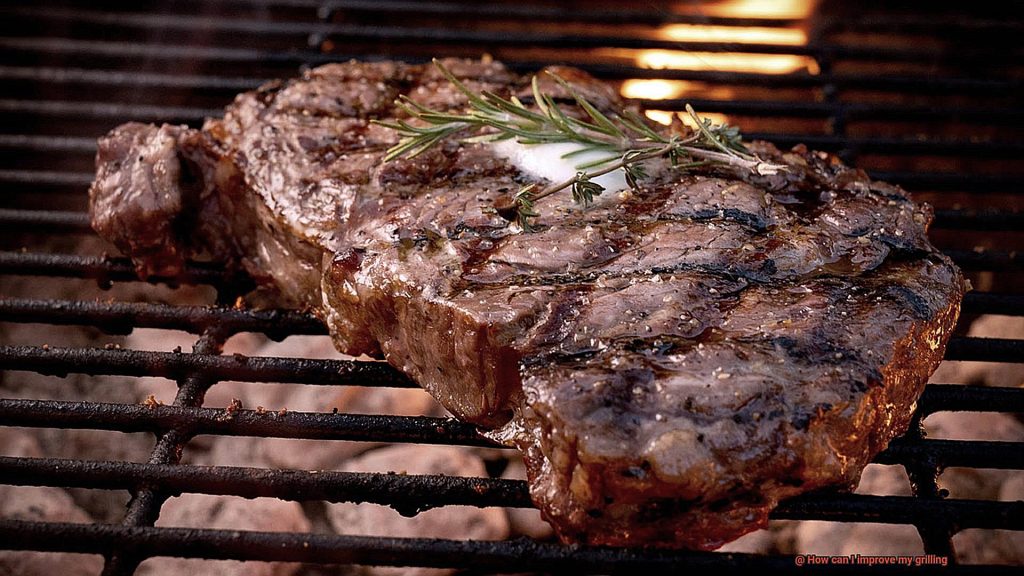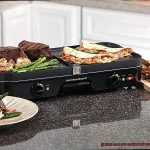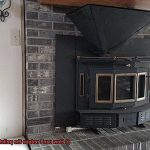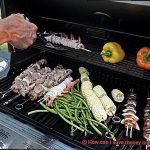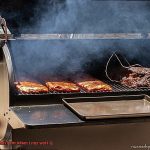Summer has arrived, and it’s time to dust off your grill and get cooking. Whether you’re a seasoned pro or a novice, there’s always room for improvement when it comes to grilling. If you want to impress your friends and family with mouth-watering meals, then you’ve come to the right place.
Grilling is one of the most popular cooking methods around, and it’s easy to see why. Nothing beats the smoky, charred flavor of a perfectly grilled steak, burger or chicken breast. However, grilling can be daunting for beginners or those who have struggled to achieve their desired results.
Thankfully, there are numerous ways to enhance your grilling game and turn out delicious meals every time. In this post, we’ll delve into some key tips and tricks for mastering the art of grilling. We’ll cover everything from selecting the right equipment and preparing your food correctly to cooking it to perfection. Additionally, we’ll examine common mistakes that can ruin your results and how to avoid them.
Whether you’re an experienced grill master or a newbie just starting out, keep reading for expert advice on how to elevate your outdoor cooking skills and take your grilling game up a notch.
Contents
Cleaning the Grill Before Cooking
Not only does it remove any leftover food debris and grease, but it also prevents any potential bacteria growth that could cause foodborne illness.
To start, preheat your grill to high heat for 10-15 minutes. This helps to burn off any remaining food particles and prepares the grates for cleaning. Next, use a grill brush with stiff wire bristles to scrub the grates thoroughly. For gas grills, turn off the burners and disconnect the propane tank before cleaning. For charcoal grills, use a long-handled brush to avoid contact with hot coals.
After brushing, wipe down the grates with a damp cloth or paper towel to remove any remaining debris. For stubborn grease buildup, use a grill cleaner or degreaser specifically designed for grills. Spray the cleaner on the grates and let it sit for a few minutes before scrubbing with the grill brush and wiping clean.
Cleaning the grill after each use is crucial to prevent buildup and prolong its lifespan. It’s important to note that regularly cleaning the grill will improve its overall performance and ensure that your food is cooked evenly without any lingering flavors from previous meals.
In addition to regular cleaning, there are other ways to take your grilling skills to the next level. Here are some tips:
- Marinate your meat before grilling: This adds flavor and helps tenderize the meat.
- Use a meat thermometer: To ensure proper cooking temperature, use a meat thermometer to check for doneness.
- Experiment with different types of wood chips or charcoal: This can add unique flavors to your grilled food.
Marinating Meat for Maximum Flavor
This simple technique can make a world of difference in the taste and texture of your meat.
First things first, let’s talk about the components of a good marinade. A marinade typically consists of three main parts: oil, acid, and seasonings. The oil keeps the meat moist while cooking, the acid tenderizes the meat by breaking down its fibers, and the seasonings add depth and flavor.
When it comes to choosing your acid, there are plenty of options to choose from. Citrus juices like lemon or lime can add a bright, zesty flavor, while vinegar can provide a tangy punch. Experiment with different acids to find what works best for you and your guests.
Next up, don’t forget the oil. While it’s important to keep the meat moist, too much oil can result in a greasy end product. Aim for a ratio of three parts oil to one part acid for the perfect balance.
Now for the fun part – seasonings. This is where you can really get creative and tailor your marinade to your personal taste. Garlic, herbs, spices, and even honey or soy sauce can all be used to add unique flavors to your meat.
But how long should you marinate your meat? While it’s tempting to throw it on the grill right away, letting it sit in the marinade for at least a few hours (or even overnight) is key. This allows the flavors to fully penetrate the meat and results in a more flavorful and tender end product.
Lastly, remember that different meats may require different types of marinades. For example, a sweet marinade might work well with pork or chicken, while a spicy marinade might be better suited for beef or lamb.
Using a Meat Thermometer for Perfectly Cooked Meats
Look no further than a trusty meat thermometer.
Using a meat thermometer is an essential tool for ensuring perfectly cooked meats. It helps you avoid the dreaded dry and tough meat or worse, foodborne illnesses. The first step in using a meat thermometer is choosing the right type. While both digital and analog thermometers are available, digital thermometers are more accurate and easier to use.
Before grilling your meat, make sure to clean and sanitize your thermometer. Then, insert the probe into the thickest part of the meat, being careful not to touch any bones or fat. For thin cuts of meat, insert the thermometer from the side for an accurate reading.
Now comes the exciting part – cooking your meat. The USDA recommends different temperatures for different meats. Beef, pork, lamb, and veal should be cooked to 145°F for medium-rare, 160°F for medium, and 170°F for well-done. Poultry should be cooked to a minimum temperature of 165°F. Fish should reach an internal temperature of 145°F before being considered done.
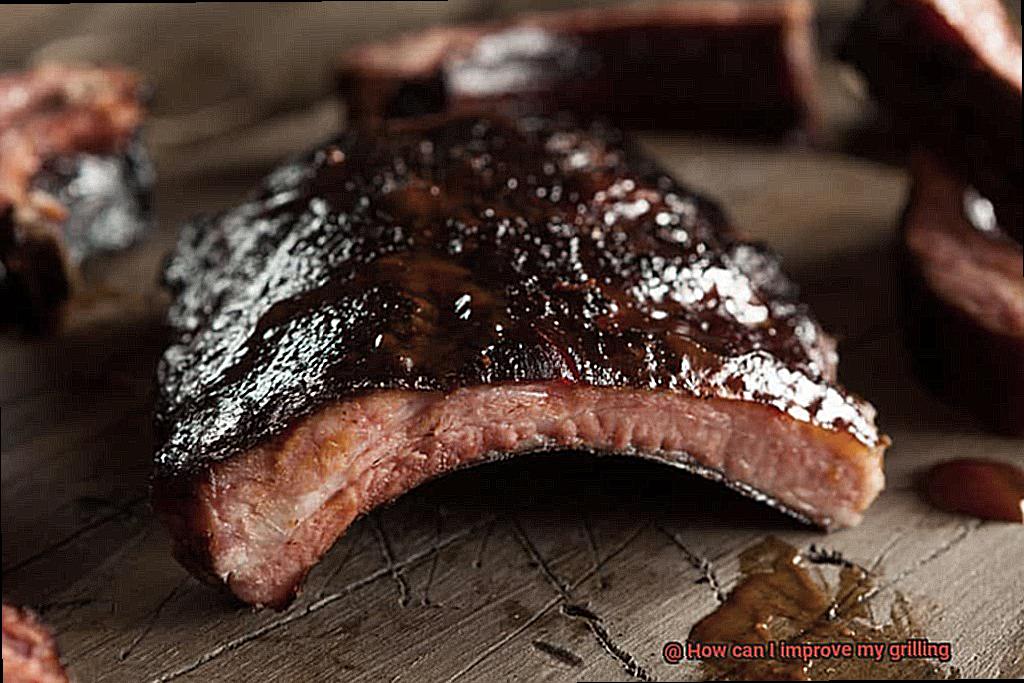
Once your meat has reached its desired temperature, remove it from the grill and let it rest for a few minutes before cutting into it. This allows the juices to redistribute and results in more flavorful and tender meat.
But wait, there’s more. Here are some additional tips to ensure perfectly cooked meats:
- For more accurate readings, take multiple temperature readings from various parts of the meat.
- Use a timer to keep track of cooking time.
- Avoid piercing the meat too much as it can lead to juice loss and dryness.
- Always clean and sanitize your thermometer after each use.
Using a meat thermometer may seem like an extra step in grilling, but trust us when we say it’s worth it. With practice, you’ll learn to tell when your meats are done by their color and texture, but until then, rely on your trusty meat thermometer for perfectly cooked meats every time.
Adding Extra Flavor with Wood Chips or Charcoal
Adding extra flavor to your grilled dishes is a must if you want to impress your guests and elevate your grilling skills. And what better way to do it than by using wood chips or charcoal? As an expert in this field, I’m here to guide you through the differences between these two methods and how to use them effectively.
Let’s start with wood chips. These little flavor bombs come in many types, each with its unique flavor profile. Whether it’s the smoky taste of hickory, the sweet notes of applewood, or the fruity aroma of cherry, there’s a wood chip for every dish.
To use wood chips, soak them in water for at least 30 minutes before grilling. This will help them smolder and release their flavor slowly. You can add them directly to your charcoal or place them in a smoker box on a gas grill. The result? A depth of flavor that will take your grilled food to the next level.
Now, let’s talk about charcoal – the go-to method for achieving that authentic smoky flavor that gas grills just can’t replicate. There are two primary types of charcoal: briquettes and lump charcoal.
Briquettes are made from compressed sawdust and other materials and burn longer than lump charcoal. They also produce less ash, which makes cleaning up easier. However, their uniform shape and size can affect airflow within the grill.
Lump charcoal, made from chunks of hardwood that have been charred, burns hotter and faster than briquettes. It does produce more ash, but its various sizes and shapes can provide a unique burning experience that briquettes cannot match.
To use charcoal, light it using a chimney starter or lighter fluid. Once the coals are hot and covered in ash, spread them out evenly on one side of the grill for indirect cooking or use them in a charcoal basket for direct heat.
Experimenting with Different Seasonings and Marinades
Well, it’s time to step up your grilling game by experimenting with different seasonings and marinades. Not only is this a great way to add new dimensions of flavor to your meats, but it’s also easy and fun to do.
Let’s start with seasoning. While salt and pepper are staples, don’t be afraid to mix it up with herbs and spices. Garlic powder, onion powder, paprika, cumin, and chili powder are just a few examples of how you can elevate the taste of your meats. And the best part? The possibilities are endless.
But why stop at seasoning when you can also marinate your meat? A marinade combines an acid (such as vinegar or citrus juice), oil, and various spices and herbs. This not only adds flavor but also tenderizes your meat. And who doesn’t love juicy, tender meat?
Now, here’s the important part – choosing the right marinade for your meat. Consider the type of meat you’re cooking and what flavors would complement it best. For example, a marinade with a lot of acid may work well for chicken or fish, but could potentially ruin a steak. Take some time to research and experiment, and you’ll find the perfect marinade for your specific meat.
And while marinating is great, don’t overdo it. Leaving your meat in a marinade for too long can actually make it tough and chewy. Stick to a few hours (or overnight if you’re feeling adventurous) and you’ll have perfectly flavored and tender meat.
Preheating the Grill Properly
The secret to achieving perfectly grilled meats and vegetables lies in proper preheating. As an expert in this area, I am excited to share some tips and tricks to help take your grilling game to the next level.
First things first, ensure that your grill grates are clean. A thorough cleaning with a wire brush removes any leftover debris or food residue, preventing unwanted flavors from transferring to your current meal.
Next, crank up all the burners to the highest setting and close the lid. Allow your grill to heat up for at least 10-15 minutes before placing any food on the grates. This step ensures that the grates are hot enough to create a non-stick surface, making it easier to flip and remove food without leaving anything behind.
It’s crucial to consider the type of grill you’re using. Gas grills heat up faster than charcoal grills; therefore, adjust your preheating time accordingly. For charcoal grills, ensure that the coals are fully ashed over before adding any food to the grates.
Proper preheating not only ensures evenly cooked food but also helps prevent sticking. Who wants their perfectly grilled steak or veggies sticking to the grill? Not me. A hot grill creates a non-stick surface that allows for easy flipping and removal of food.
Keeping Your Grill Covered When Not in Use
Grilling is an art, and a well-maintained grill is the key to achieve perfection in every dish. Keeping your grill covered when not in use is an essential step towards upgrading your grilling experience. Not only does it protect your grill from the elements, but it also prevents dust, debris, and critters from getting inside.
One of the main reasons for covering your grill is to maintain its temperature. Leaving your grill uncovered can expose it to weather conditions that can cause it to heat up or cool down too quickly. This can make it challenging to attain and sustain the desired temperature for cooking.
In addition to maintaining temperature control, covering your grill also helps prolong its lifespan. Exposure to sun, rain, and wind can lead to rust, corrosion, and other damage. Keeping your grill covered when not in use shields it from these elements and prevents premature wear and tear.
Choosing a cover for your grill requires careful consideration. Make sure you select a cover that’s specifically designed for your model. A well-fitting cover provides maximum protection and ensures that no water or debris gets inside. Look for covers made from durable materials such as vinyl or polyester that are weather-resistant and can withstand extreme temperatures.
Apart from using a cover, keeping your grill clean is crucial for optimal performance. Regular cleaning prevents the buildup of grease and other debris that can attract insects and rodents. A clean grill also heats more evenly and efficiently, which results in better grilling outcomes.
Avoiding Flare-Ups and Grease Fires
Grilling is a beloved pastime, but it’s not without its dangers. Flare-ups and grease fires can put a damper on your meal and pose a serious hazard. However, with a few simple steps, you can avoid these issues while still enjoying perfectly cooked and delicious grilled foods.
Clean Your Grill Grates
The first step in avoiding flare-ups and grease fires is to keep your grill grates clean. Grease and debris buildup on the grates can cause flames to flare up and make it harder to cook your food evenly. Make sure to give your grates a good scrubbing before each use with a wire brush or grill scraper. Your food will cook better and you’ll reduce your risk of fire.
Control Your Heat Source
Another important step is to control your heat source. If you’re using a gas grill, keep the burners on a lower setting and position your food away from direct heat. With charcoal grills, create two zones – one with hot coals and one with fewer coals or no coals at all – so you can move the food around as needed. This gives you more control over the cooking process and reduces the risk of flare-ups.
Use a Drip Pan or Foil
When cooking fatty meats like burgers or ribs, consider using a drip pan or foil to catch any excess fat or oil that may drip from the food. This will prevent flare-ups and make cleanup easier. Simply place the pan or foil underneath the food before you start cooking.
N28WPCVE1J0″ >
Conclusion
Grilling is a time-honored tradition that unites people over delicious food, and with summer in full swing, it’s the perfect time to up your grilling game. Whether you’re a seasoned grill master or just starting out, there are always ways to improve your skills. In this article, we’ve shared some expert tips and tricks to help take your outdoor cooking to the next level.
Before you even start cooking, it’s crucial to clean your grill thoroughly. Once you’ve got a clean slate, experiment with different seasonings and marinades to add extra flavor to your dishes. Using a meat thermometer ensures perfectly cooked meats every time, while adding wood chips or charcoal can impart smoky goodness into your meals. Don’t forget about proper preheating and covering your grill when not in use – these simple steps can extend the lifespan of your grill and help maintain temperature control.
However, safety should always be top of mind when grilling. Flare-ups and grease fires can quickly ruin any cookout. Keep your grill grates clean, control your heat source, and use drip pans or foil when cooking fatty meats to avoid any dangerous situations.
By following these expert tips and tricks, you’ll be able to impress everyone at your next cookout with mouth-watering meals all summer long.

